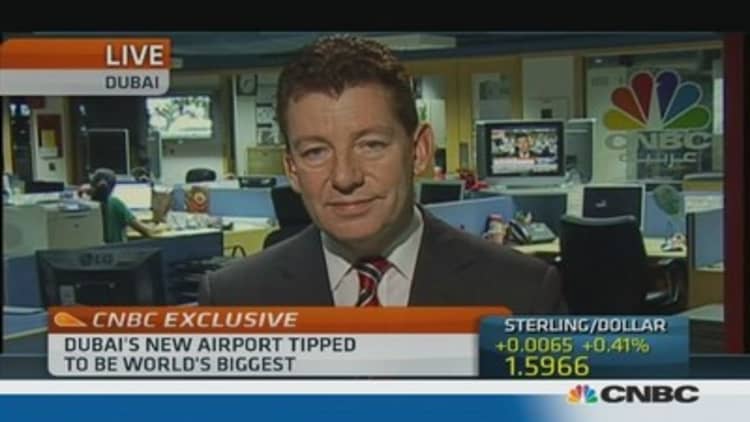Dubai's hot property market is clearly becoming too hot, even for authorities. On Sunday, the government of the emirate began doubling real estate transaction fees from two to four percent.
The ruling affects freehold property, a popular investment vehicle for foreigners.
Prices have risen dramatically over the course of the past year, and the International Monetary Fund (IMF) recently advised policymakers to consider additional legislation to curb excessive price gains in the market.
(Read more: )
Nick Maclean, Managing Director at CBRE, a global real estate advisory, explained to CNBC the balance between buyers who are end users and buyers who are short-term speculators was simply out of balance.
"The government is therefore absolutely right in proposing several different measures designed to encourage people to take a longer term view on the Dubai real estate," he said.
The sustainability of the exorbitant price growth in the property market has been met with skepticism. There are concerns that a replay of the bubble that burst spectacularly in 2008/2009 and pushed Dubai to the brink of default is underway.

Jones Lang LaSalle (JLL), another real estate consultancy, underscored that slower growth would ultimately prove more beneficial for the Emirate.
"The rate of increases seen over the past year is indeed unsustainable and that while residential prices and rents will continue to increase over the next 12 months, the rate of increase will decline somewhat," its latest report read.
A look at the numbers explains why. JLL pointed to a year-on-year increase of 21.4 percent from June 2012 to June 2013 for prime residential property. Data from the Dubai Land Department also revealed new records in transaction values on a single day, even topping 2008 levels.
Sultan Butti Bin Mejren, Director General of the Dubai Land Department, told reporters in late September the amendments would help foster a healthier market.
(Read more: Is Malaysia's property market headed for a Dubai-style crash?)
"The IMF warning came in line with our findings and that is why we think that increasing the fees will limit speculation and protect from a bubble. We decided to increase these fees before they even recommended it," he made clear.
The move does not affect the Dubai International Financial Center (DIFC), a free zone in the heart of the city where the transaction rate has been 3.5 percent.
It also comes as Dubai opens its doors to property investors from around the world at the annual Cityscape fair. Higher transaction fees further translate into higher government revenues ahead of debt coming due over the next few years.
(Read more: Africa has greater potential than India: StanChart)
Despite the hike, a rate of four percent is still low compared to other emerging markets such as Turkey, India and South Africa.
Property experts have told CNBC maintaining upward price momentum could hinge on the emirate's bid for the 2020 World Expo. Other cities vying for the coveted event include Izmir (Turkey), Yekaterinburg (Russia) and Sao Pablo (Brazil). The winning proposal will be announced in November.
UAE Economy Minister Sultan Al Mansouri said last month he expected the economy to grow by 4.5 percent this year, a notably more bullish forecast than the IMF's 3.1 percent.

